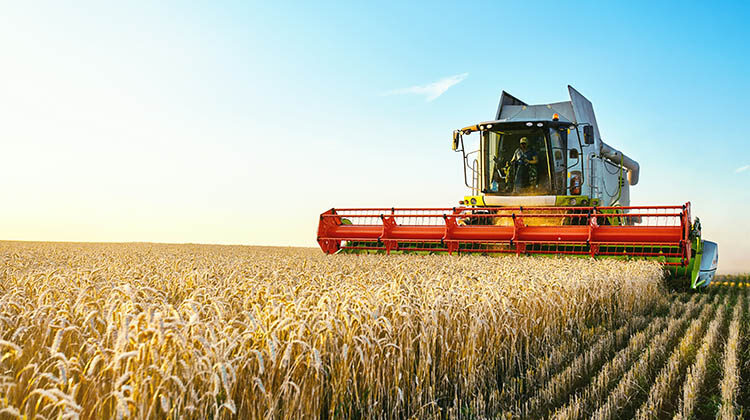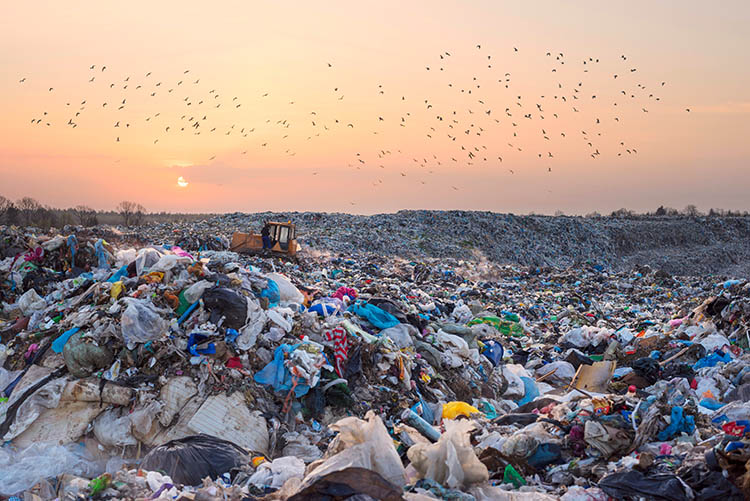
The Geographical Better World Video Awards highlights the successful stories of the people working to tackle some of the biggest global issues today
By
For the Geographical Better World Video Awards (sponsored by MPB and Wakatobi), we asked you to share the stories of the people working to find solutions to some of the biggest global issues facing the world today, from wars to plastic pollution and biodiversity loss. We received lots of inspirational videos that show how, together, we can make a difference. Voting for the winners of the Better World Video Awards closes Monday, so don’t miss your chance to support your favourite entry. In the meantime, we take a look at five different global issues raised by the entries, and the people and projects creating solutions.
Feeding a growing world

Food production is tacking a huge toll on the planet. Studies show that it is responsible for up to one-third of all human-caused greenhouse gas emissions, of which 30 per cent comes from livestock and fisheries. Crops and pastures also cover vast amounts of land – one-third of Earth’s land surfaces (agriculture is the leading cause of deforestation) – and consume three-quarters of the world’s limited freshwater resources.
In South Devon, however, one revolutionary school training the next generation of regenerative farmers. The Apricot Centre Regenerative Agriculture School offers a range of courses in sustainable food systems, helping landowners to create sustainable, biodiverse farms that support wildlife while reducing their impact on the environment. Meanwhile, a tuna fishery in Spain and a fishery in Weymouth, UK, are showing how aquaculture can also be more sustainable. Here, fishers are working to prevent bycatch, protect endangered species, and reduce the quantity of discarded fishing gear in the seas.
Helping those facing conflict and displacement
This year is expected to be a challenging one for the humanitarian world. In 2022, the Conflict Barometer (which ranks the intensity of violent conflicts) reported a total of 363 conflicts worldwide. The figures for 2024 are even more alarming, and experts have predicted that the number of people displaced by violence and conflict will reach almost 63 million in the next 12 months.
In the midst of these crises, however, aid organisations and ordinary citizens are doing what they can to support the people most affected by conflict. In Burkina Faso, where an ongoing civil war has torn apart families and displaced more than two million people, children’s charity Plan International are helping young boys – dragged into the war to work as soldiers – to rediscover their lost childhoods. As the war in Ukraine continues, a group of friends in Berlin show how individuals, too, can make a difference, as they load up cars and vans to drive essential supplies (such as medicine) across the continent to Odessa. There are many other ways that volunteers can help the people fleeing conflict, as RefYouMe has demonstrated. The volunteering and fundraising community group are working to make it easier for people to donate their time to supporting refugees in camps in Calais and Dunkirk.
Solving the global waste problem

Every year, we create an enormous 2.12 billion tonnes of waste, from plastics and household rubbish to construction and industrial waste. More than a third of all waste is generated by high-income countries, despite them only accounting for 16 per cent of the world’s total population. However, as populations continue to grow, waste from South Asia and Sub-Saharan Africa is projected to double and triple (respectively) by 2050.
Plastic waste is particularly problematic. Millions of tonnes of it end up in our oceans every year, threatening marine ecosystems and even our own health. As much as 10 per cent of marine plastics come from dumped fishing gear, which is why one initiative on the island of Menorca is turning discarded nets into art to prevent it from ending up in our oceans. Meanwhile, another social enterprise, called Clean the World, is transforming used plastic products from hotels into lifesaving supplies for communities in need across the globe.
Elsewhere, activists are working to raise awareness of the problem in their local communities. There’s Modue Fall – better known as Plastic Man – who is working to drive down plastic pollution in Senegal; community hero Tirza Meinema, who has worked tirelessly to engage her neighbours in Slough to tackle unnecessary waste; passionate composter Ben Bushell, who is helping to revolutionise small-scale commercial composting; and the couple who’ve gone eight years without a bin, who share their tips on how to live a zero-waste life.
Healing broken communities
The Covid-19 pandemic further intensified many of the issues faced by communities in the UK and elsewhere, as people withdrew from public places and offices and started spending more time at home. Social isolation is considered to be one of the greatest public health challenges we face today, with more than seven per cent of Brits (nearly four million people) experiencing chronic loneliness.
‘The pandemic compounded problems for people already struggling with anxiety, depression or other mental health issues, often linked to a complex range of problems such as ill-health, addiction issues, unemployment, financial struggles or family issues,’ says Sharron Bright, community engagement officer at waterways charity Canal & River Trust. Bright is responsible for a project called From Isolation to Inclusion (I2I), which is helping to transform the lives of people struggling with loneliness by helping them to access nature and make new friends. In fact, there are lots of fantastic projects with similar goals, including London-based charity MindFood which is working to connect people and nature; a community space in New Zealand where members offer support to others and help to build community resilience; and the social action group bringing young and old generations together to campaign for change in their East London community.
Halting biodiversity loss

In 2020, a WWF report found that the populations of mammals, fish, birds, reptiles and amphibians have experienced a decline of an average of 68 per cent between 1970 and 2016. As such, some experts have suggested that we are currently experiencing the sixth mass extinction of life on Earth.
In the UK, conservationists concerned by the biodiversity crisis are working to regenerate degraded landscapes are reintroduce lost species, the team restoring a nature reserve in the Scottish Highlands – now home to breeding wildcats – to the woodlands in Kent that is now home to a group of free-roaming bison. Scotland’s Oldest Pines (the remnants of ancient Caledonian pinewood forest) are now protected, a former golf course in the South Downs is being restored back to chalk grasslands (one of the world’s rarest habitats), and communities in Oxfordshire are helping wetlands to flourish, encouraging the return of the endangered curlew.
Further afield, South Africa’s third-largest protected area is now home to growing populations of cheetah, black rhino, elephants and lions; Turkey’s vital seagrass meadows are thriving once more; a new marine protection zone is safeguarding sperm whales around the island of Dominica; and park rangers are helping to keep poachers away from the beautiful scarlet macaws of Belize.




